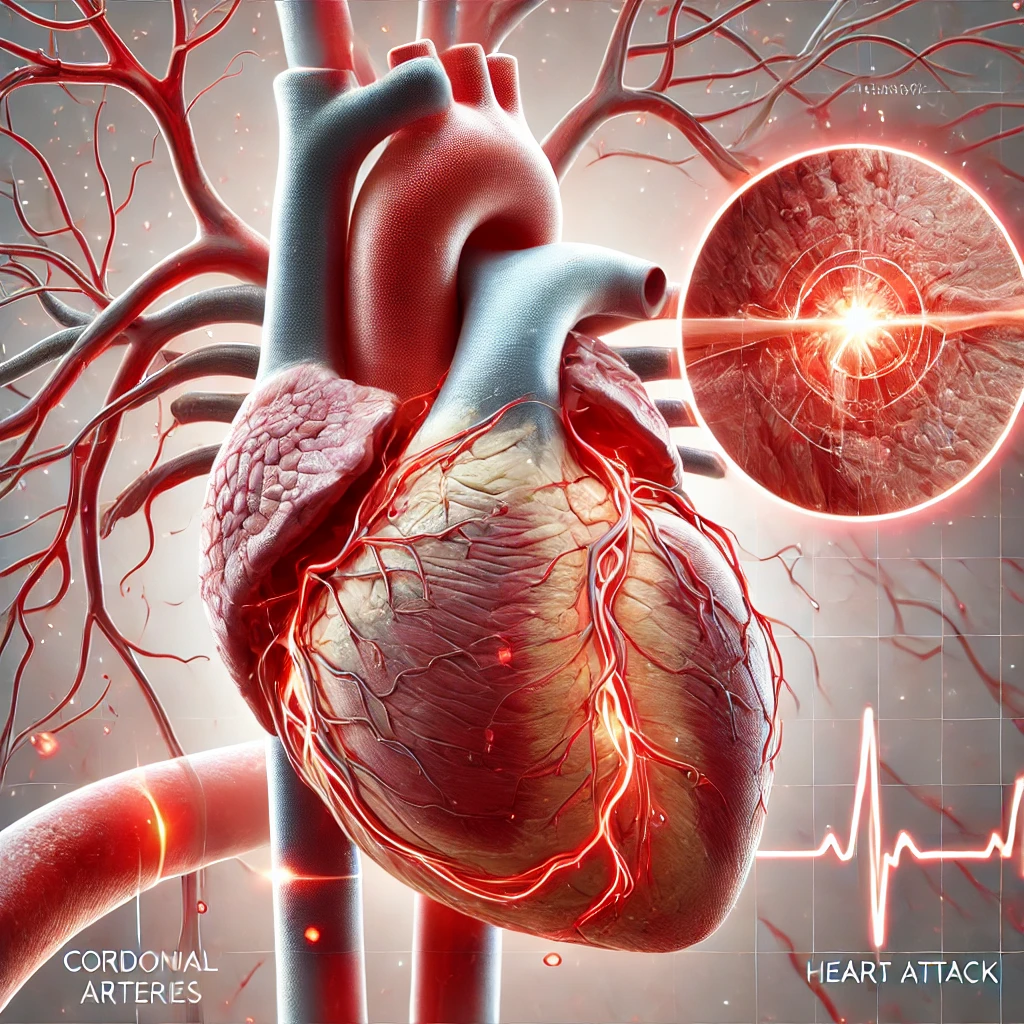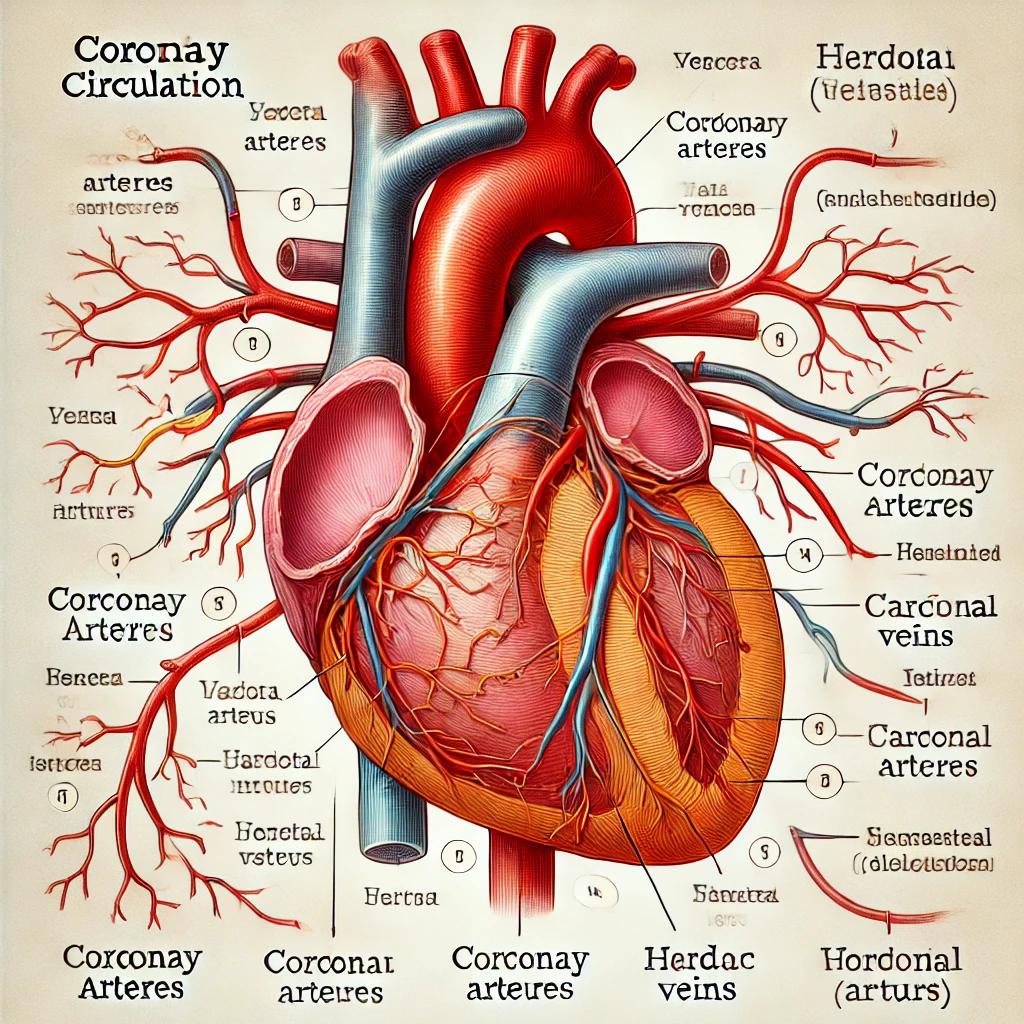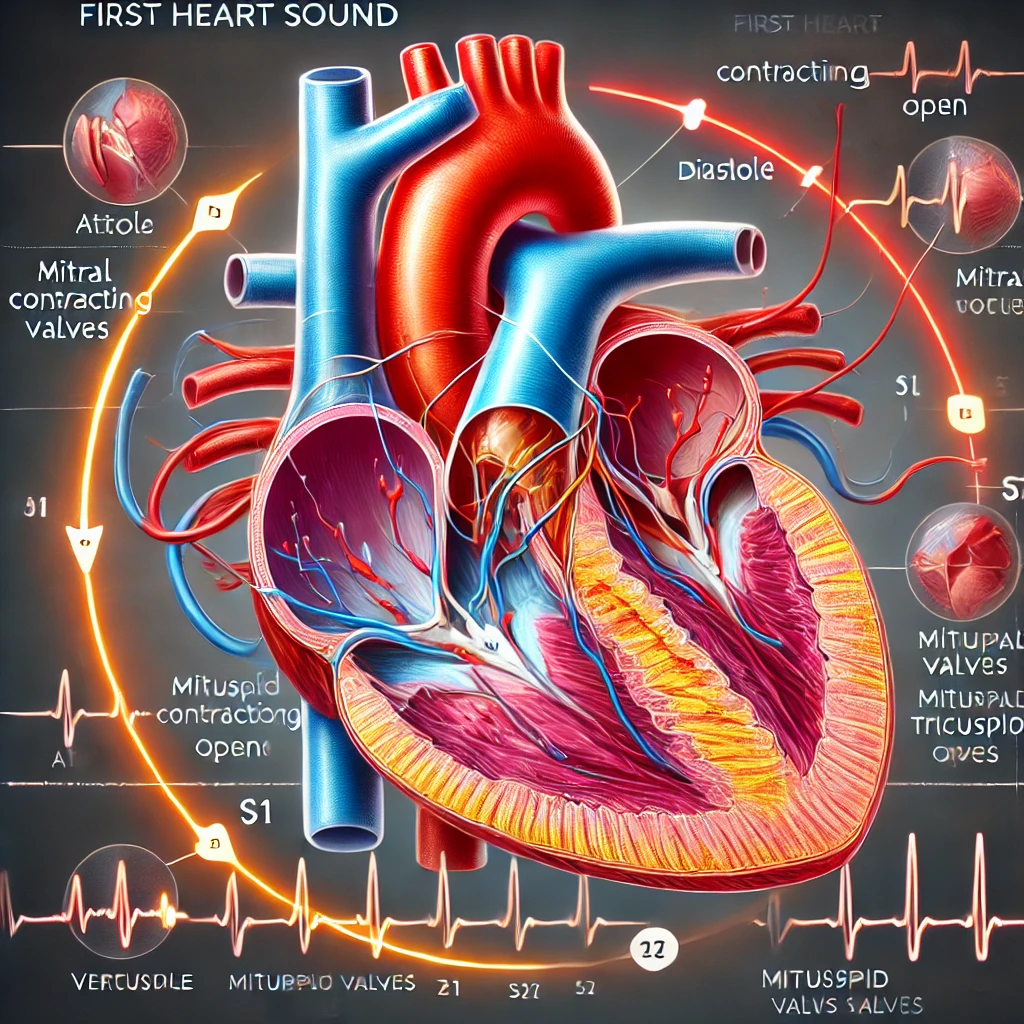Harnessing Artificial Intelligence for Revolutionizing Healthcare

The Advent of AI in Medicine
Artificial Intelligence (AI) is taking the world by storm, and its impact on medicine is no exception. By leveraging sophisticated algorithms and machine learning, AI can perform tasks that traditionally require human intelligence. This includes understanding complex medical data, making predictive diagnostics, and suggesting personalized treatment plans. This revolutionary technology promises to significantly enhance patient care, making healthcare more efficient, affordable, and accessible.
Understanding the AI Revolution in Healthcare
Artificial Intelligence can be categorized into two broad types: Narrow AI, designed to perform specific tasks, such as interpreting medical images, and General AI, which can theoretically perform any intellectual task that a human can do.
Predictive Diagnostics: An AI Game-Changer
Predictive diagnostics represents one of the most transformative applications of Artificial Intelligence (AI) in healthcare. Utilizing AI, physicians can harness a wealth of patient data to predict disease progression and outcomes, enabling proactive management and individualized treatment protocols. AI’s role in predictive diagnostics exemplifies a significant shift from reactive medicine to a more proactive, preventative approach.
Predictive Diagnostics Defined
Predictive diagnostics involves the use of AI systems to analyze vast amounts of data—everything from genetic markers to lifestyle habits—to detect diseases at an early stage or even predict their occurrence before any symptoms appear. By employing complex algorithms and machine learning techniques, AI can discern patterns and relationships in data that might otherwise go unnoticed by the human eye.
The Potential of AI in Predictive Diagnostics
AI’s predictive power in diagnostics is vast. It has the potential to revolutionize many aspects of healthcare, from the early detection of life-threatening diseases to predicting patient response to specific treatments.
Early Disease Detection
Early disease detection is one of AI’s most significant contributions to predictive diagnostics. By analyzing patient data, AI can identify subtle changes that could signal the early stages of diseases such as cancer, heart disease, or Alzheimer’s. For instance, machine learning algorithms can analyze mammogram images to detect early-stage breast cancer, often more accurately than human radiologists1.
Predicting Treatment Outcomes
In addition to detecting diseases, AI can also predict how a patient might respond to a particular treatment plan. AI algorithms can analyze a patient’s health data—genetic, clinical, and lifestyle—to predict their unique response to specific drugs or therapies. This application of AI can lead to more personalized and effective treatment plans.
The Role of Big Data in Predictive Diagnostics
Big Data, characterized by the enormous volume, velocity, and variety of data, plays a pivotal role in AI’s predictive capabilities. Healthcare generates a massive amount of data, including electronic health records (EHRs), imaging data, genetic data, and lifestyle data. AI can harness this data to make predictive diagnostics possible.
Case Studies: AI in Action
Several groundbreaking initiatives exemplify AI’s transformative potential in predictive diagnostics:
- Google’s DeepMind Health Project: DeepMind’s AI technology has been trained to predict the development of Acute Kidney Injury (AKI) up to 48 hours before it happens, giving doctors a critical window to prevent deterioration
- IBM Watson Health: Watson’s AI has been utilized to provide personalized treatment recommendations for cancer patients, analyzing their genetic data and comparing it to vast amounts of medical literature and clinical studies
- Zebra Medical Vision: Zebra’s AI algorithms analyze medical imaging data to detect various diseases, including lung cancer, cardiovascular conditions, and liver diseases, often before symptoms appear.
The Future of Predictive Diagnostics
While AI’s impact on predictive diagnostics is already significant, the future holds even more potential. As AI technology advances and more data becomes available, predictive diagnostics will become even more accurate and widespread. It will allow healthcare providers to stay one step ahead of diseases, making early intervention and prevention a reality.
While this progress is exciting, it’s essential to remember the challenges and ethical considerations that come with AI’s integration into healthcare. Data privacy, algorithmic transparency, and accountability must be addressed to harness AI’s benefits in predictive diagnostics fully. Despite these challenges, the potential of AI to transform healthcare is enormous, and predictive diagnostics is just one area where it’s already making a significant difference.
Personalized Medicine: The Future of Healthcare
Personalized medicine, sometimes called precision medicine, represents a revolution in healthcare. It is tailoring medical treatment to each patient’s characteristics, needs, and preferences. With the integration of advanced technologies such as Artificial Intelligence (AI) and genomics, personalized medicine is changing how diseases are diagnosed, treated, and prevented.
The Core Concept of Personalized Medicine
Personalized medicine relies on the understanding that each individual’s genetic makeup, environmental factors, and lifestyle choices influence their health and response to treatment. It is a shift from traditional medicine’s ‘one-size-fits-all’ approach to a more personalized, patient-centered approach.
The Role of AI and Genomics in Personalized Medicine
AI and genomics have been instrumental in the rise of personalized medicine. AI can process and analyze massive amounts of data, including genomics data, to identify patterns and relationships that may influence a patient’s health.
Genomics, the study of an individual’s complete set of DNA, provides a wealth of information about their health, such as the likelihood of developing certain diseases or how they might respond to specific treatments.
Genomics and Disease Prediction
One of the fundamental applications of genomics in personalized medicine is disease prediction. By analyzing a patient’s genetic profile, healthcare professionals can identify the risk of developing certain diseases and take preventative measures.
Pharmacogenomics: Personalized Drug Therapy
Pharmacogenomics, a subfield of genomics, focuses on understanding how an individual’s genetic makeup affects their response to drugs. It allows for more effective, safe, and personalized drug therapy.
AI-Driven Personalized Medicine: Case Studies
Several groundbreaking projects illustrate the potential of AI-driven personalized medicine:
- IBM Watson Health: IBM’s Watson is being used to analyze the genetic data of cancer patients to provide personalized treatment options, considering factors such as the patient’s genetic makeup and the genetic profile of the tumor
- Google’s DeepVariant: Google’s AI tool, DeepVariant, uses machine learning to generate a more accurate picture of a person’s genome, aiding in more accurate disease prediction and personalized treatment plans
- 23andMe: This company uses AI to analyze genetic data from simple saliva tests, providing individuals with information about their genetic health risks, carrier status for certain conditions, and even ancestry.
The Future of Personalized Medicine
As technology evolves, personalized medicine is set to become even more precise and effective. Advances in AI, genomics, and other areas of biotechnology will enable even more personalized, predictive, and preventive healthcare.
While personalized medicine promises to transform healthcare, it is not without challenges. Data privacy, clinical implementation, and ethical considerations must be addressed. However, the potential benefits of personalized medicine outweigh these challenges, signaling a promising future for healthcare.
AI and Robotic Surgery: Revolutionizing the Operating Room
Artificial Intelligence (AI) and robotic surgery are two of the most transformative technologies in healthcare today. They are reshaping surgical procedures, improving patient outcomes, and revolutionizing the operating room. In this in-depth exploration, we will delve into how AI and robotic surgery are working together to change the future of medicine.
The Basics of Robotic Surgery
Robotic surgery, also known as robot-assisted surgery, allows doctors to perform complex procedures with more precision, flexibility, and control than conventional techniques. It involves a surgeon controlling a computer-enhanced robotic system to carry out surgical procedures. The key components of a robotic system include a surgeon console, patient-side robotic manipulators, and a high-definition 3D vision system.
Enter Artificial Intelligence
Artificial Intelligence adds another layer of sophistication to robotic surgery. AI can analyze vast amounts of data from past operations to predict surgical outcomes, provide real-time guidance during surgery, and even automate some surgical tasks.
Predicting Surgical Outcomes
Using machine learning algorithms, AI can analyze patient data and previous surgical outcomes to predict the risk of complications, estimate surgery times, and inform preoperative planning.
Real-time Guidance
AI can provide real-time image analysis during surgery, identifying anatomical structures and critical areas to avoid. This assists surgeons in making precise movements and reduces the risk of damage to healthy tissues.
Automation of Surgical Tasks
Research is underway on AI systems capable of autonomously performing simple surgical tasks such as suturing or tissue retraction.
The Impact of AI and Robotic Surgery
The combination of AI and robotic surgery is bringing numerous benefits to healthcare:
- Improved Precision and Control: Robotic systems, enhanced with AI, offer greater precision and control, leading to fewer complications and better patient outcomes.
- Minimally Invasive Procedures: Robotic surgery enables surgeons to perform complex procedures through small incisions, reducing patient recovery time and post-operative pain.
- Enhanced Visualization: The 3D visualization provided by robotic systems, combined with AI-powered image analysis, gives surgeons a clearer view of the surgical field.
- Data-driven Decision Making: AI’s ability to analyze vast amounts of data helps surgeons make more informed decisions, improving the quality of care.
Case Studies: AI and Robotic Surgery in Action
Several organizations and initiatives showcase the potential of AI and robotic surgery:
- Intuitive Surgical’s da Vinci System: This pioneering robotic surgical system uses AI for real-time image analysis, helping surgeons perform precise and minimally invasive procedures.
- Medtronic’s Hugo™ Robotic-Assisted Surgery System: The Hugo system integrates AI to analyze surgical data and provide actionable insights, improving surgical performance and patient outcomes.
- Google’s Verb Surgical3: This Alphabet-backed venture aims to combine robotics, AI, and other technologies to redefine the future of surgery.
The Future of AI and Robotic Surgery
The future of AI and robotic surgery looks promising. We can expect more precise, effective, and personalized surgical care with advancements in AI algorithms and robotic technology. Despite potential challenges such as ethical concerns, data security, and high costs, AI and robotic surgery hold the potential to revolutionize the operating room truly.
AI and Patient Care
Artificial Intelligence (AI) is bringing about a paradigm shift in the healthcare sector, revolutionizing patient care. Its adoption in patient care extends across various domains, from personalized treatment plans to remote patient monitoring and predictive healthcare. In this section, we delve into how AI enhances patient care and shapes healthcare’s future.
Personalized Treatment: Tailoring Healthcare to Each Individual
One of the most significant contributions of AI to patient care is the advent of personalized treatment. AI algorithms analyze patients’ genetic information, lifestyle, and medical history to tailor treatment plans best suited for them. This approach goes beyond the “one-size-fits-all” paradigm and considers individual patient variations to optimize treatment outcomes.
Remote Patient Monitoring: Healthcare Beyond Hospital Walls
AI-powered remote patient monitoring systems are transforming the way we perceive healthcare. These systems enable continuous monitoring of patient’s health parameters outside traditional healthcare settings. Data from wearable devices, smartphones, and home monitoring devices are analyzed using AI algorithms, alerting healthcare providers about any significant health changes.
Predictive Healthcare: Anticipating Health Risks Before They Happen
AI has given rise to predictive healthcare – a proactive approach that predicts health risks before they occur. Machine learning models are trained on large datasets to identify patterns and predict the likelihood of disease progression, patient readmission, and other health-related events. These insights can help in early intervention, thereby improving patient outcomes.
AI Chatbots: The New-age Health Advisors
AI chatbots have emerged as virtual health advisors, providing health-related information, reminders for medication, and even mental health support. They leverage natural language processing to interact with patients in a human-like manner, providing round-the-clock assistance.
Clinical Decision Support Systems: Assisting Physicians in Patient Care
AI-based clinical decision support systems assist physicians in diagnosing diseases, planning treatment, and predicting patient outcomes. These systems analyze vast amounts of clinical data to provide evidence-based recommendations, enhancing the quality of patient care.
Case Studies: AI in Patient Care in Action
Several organizations and initiatives exemplify the potential of AI in patient care:
- IBM Watson Health: Watson Health leverages AI to analyze patient data, assisting healthcare professionals in making informed decisions about patient care.
- Google’s DeepMind Health DeepMind Health uses AI algorithms to predict diseases, facilitating early intervention and improving patient care.
- Microsoft’s InnerEye: InnerEye is a research project that employs machine learning to analyze medical images, aiming to enhance disease diagnosis and treatment planning.
The Future of AI in Patient Care
As we look to the horizon, the future of patient care is being transformed before our eyes by the rising tide of artificial intelligence (AI). Whether aiding in early disease detection, enabling personalized treatment, or offering mental health support, AI is undoubtedly the future of healthcare.
Enhanced Predictive Analytics
Predictive analytics in healthcare is set to take a leap forward with AI. It’s no longer just about analyzing past health records; it’s about predicting future health outcomes. AI systems will be able to analyze a patient’s data and predict their risk of developing various diseases. This predictive capability will allow for early interventions, leading to better health outcomes and lower healthcare costs. Imagine a future where diseases could be prevented before they even occur!
Smarter Wearables and Remote Patient Monitoring
The next generation of wearable technology powered by AI will do much more than track our heart rate or steps. These smart wearables will have the ability to monitor our vitals, understand our health patterns, and even alert us about potential health issues. Combined with the concept of telehealth, AI could make remote patient monitoring highly effective, thereby transforming how healthcare is delivered.
Personalized Medicine and Treatment
AI will profoundly impact personalized medicine, enabling treatments tailored to individual patients. By analyzing a person’s genetic profile and lifestyle habits, AI systems can help design personalized treatment plans. These plans will take into account how a person’s body is likely to react to certain medications, leading to more effective treatments with fewer side effects.
Advanced AI-powered Diagnostics
Artificial Intelligence will also revolutionize diagnostics by analyzing medical images with high precision. Machine learning algorithms can detect anomalies in medical images like X-rays, MRIs, and CT scans, which the human eye might miss. Such AI-powered diagnostics will increase the accuracy of diagnoses and enable early detection of diseases.
Revolution in Mental Health Care
AI is set to revolutionize mental healthcare by providing a new level of support and treatment. AI-based chatbots, for instance, can offer round-the-clock support to people dealing with mental health issues. They can provide immediate responses, suggest coping mechanisms, and even alert a human therapist if necessary.
Health Informatics and Decision Support Systems
AI will change health informatics by sifting through large amounts of data and extracting relevant insights. AI-based decision support systems can analyze these insights and offer evidence-based recommendations, helping healthcare professionals make informed decisions about patient care.
Overcoming the Challenges
Despite its immense potential, the integration of AI in patient care isn’t without challenges. Concerns about data privacy, the need for appropriate regulations, and the risk of algorithmic bias are significant issues that must be addressed. However, the healthcare industry’s commitment to overcoming these challenges reflects its dedication to harnessing AI’s potential for a healthier future.
In conclusion, the future of AI in patient care is filled with exciting possibilities. It promises to transform healthcare into a more predictive, personalized, and effective service. While we navigate through the challenges and ethical issues, there’s no denying that AI is poised to revolutionize patient care in unimaginable ways. As we stand at the dawn of this new era, one thing is clear – with AI, the future of patient care is here.
Challenges and Ethical Considerations
While the benefits of integrating artificial intelligence (AI) into healthcare are profound, several challenges and ethical considerations must be addressed to ensure its safe and equitable use. This section will explore the hurdles and ethical dimensions of using AI in healthcare.
Data Privacy and Security
The use of AI in healthcare inherently involves the processing of vast amounts of personal and sensitive data. Ensuring this data’s privacy and security is paramount. Cybersecurity threats, data breaches, and misuse of information are significant concerns. The healthcare sector needs to invest in robust security infrastructures and protocols to protect patient data.
Transparency and Explainability
AI algorithms, particularly those involving deep learning, are often considered ‘black boxes’ due to their complex and non-transparent nature. In a field like healthcare, where life-altering decisions are made, it is crucial that these AI models are transparent and their decisions explainable.
Algorithmic Bias
AI algorithms are trained on datasets and can inherit biases present in these datasets. This can lead to unjust or prejudiced outcomes. This might mean certain demographic groups receive substandard care or incorrect diagnoses in healthcare because the AI has been trained primarily on data from different demographics.
Legal and Regulatory Concerns
The legal and regulatory landscape for AI in healthcare is still developing. Issues related to liability, malpractice, and informed consent in the context of AI-driven diagnoses or treatment plans are yet to be comprehensively addressed. Developing regulatory frameworks that can keep pace with the rapid advancement of AI technologies is a daunting challenge.
Dependence on Technology
While AI can greatly assist healthcare providers, over-reliance on technology could potentially dehumanize patient care. The role of human touch, empathy, and interpersonal communication in patient care cannot be underestimated and should not be overlooked in the rush to implement AI.
Ethics of AI in Healthcare
The use of AI in healthcare also raises numerous ethical considerations. One such concern relates to the potential inequality in access to AI-enabled healthcare. There is a risk that AI technologies might primarily benefit those who can afford them, thus widening health disparities.
Furthermore, decisions about what is considered ‘normal’ or ‘healthy’ could be influenced by AI systems, leading to ethical concerns about the power of AI to define health standards.
The Need for Interdisciplinary Collaboration
To address these challenges and ethical considerations, there’s a pressing need for interdisciplinary collaboration involving not only technologists and healthcare professionals but also ethicists, sociologists, and legal experts. Only through such diverse collaboration can we ensure that AI is implemented in a way that respects patient rights, ensures equity, and truly enhances healthcare.
In conclusion, while AI holds great promise for revolutionizing healthcare, it is imperative that we navigate these challenges and ethical considerations carefully. By doing so, we can ensure that AI is used to its full potential in healthcare, benefiting all individuals and societies at large.
The Road Ahead
The future of healthcare is indelibly linked to the advancement of artificial intelligence. Despite the challenges and ethical considerations, the promise and potential of AI in revolutionizing healthcare are undeniable. So, what does the road ahead look like? Let’s explore.
Broad Adoption Across the Healthcare Ecosystem
In the coming years, we can expect a broad adoption of AI across the healthcare ecosystem. From hospitals and clinics to research laboratories and pharmaceutical companies, AI is set to become an integral part of healthcare operations. We expect to see more AI-powered medical devices, AI-assisted surgeries, and AI-enabled health monitoring systems.
Democratization of Healthcare
AI has the potential to democratize healthcare, making it more accessible and affordable. Through telemedicine and remote patient monitoring systems powered by AI, healthcare can reach remote and underserved populations. AI can also make personalized medicine more widely available, ensuring treatments are tailored to individual patients’ needs.
Evolution of Regulations and Ethical Guidelines
As AI becomes more embedded in healthcare, we will see an evolution in regulations and ethical guidelines. Policymakers will need to keep pace with technological advancements, ensuring that AI is used responsibly and ethically in healthcare. We can expect more robust data privacy regulations, guidelines for algorithmic transparency, and policies addressing algorithmic bias.
Advancement in AI Technologies
The field of AI itself will continue to advance, with new techniques and technologies emerging. Advances in AI technologies like federated learning could address data privacy concerns. Similarly, developments in explainable AI could make AI algorithms more transparent and understandable.
Integration of AI and Other Emerging Technologies
AI will not work in isolation. Its potential will be realized when integrated with other emerging technologies like genomics, nanotechnology, and quantum computing. For instance, integrating AI with genomics can lead to breakthroughs in personalized medicine, while combining AI with nanotechnology could lead to new drug delivery or tissue regeneration methods.
Emphasis on Interdisciplinary Collaboration
The road ahead will require more than just technological advancement. There will be a growing emphasis on interdisciplinary collaboration involving technologists, healthcare professionals, ethicists, sociologists, and legal experts. Such collaboration will ensure a holistic approach to implementing AI in healthcare, addressing the technical aspects and ethical, social, and legal considerations.
Focus on Training and Skill Development
As AI becomes more prevalent in healthcare, there will be a need for training and skill development among healthcare professionals. Understanding AI and its implications will be a crucial skill for healthcare providers. Simultaneously, AI developers will need to understand healthcare protocols and ethics to develop appropriate AI solutions.
In conclusion, the road ahead for AI in healthcare is exciting, filled with opportunities and challenges. By addressing these challenges head-on and harnessing the opportunities, we can make AI a force for good in healthcare, improving health outcomes and making healthcare more accessible and personalized. The journey of AI in healthcare is just beginning, and the road ahead promises to be transformative.
FAQs:
- What is artificial intelligence (AI) in healthcare? Artificial Intelligence (AI) in healthcare refers to the use of complex algorithms and software to emulate human cognition in the analysis, interpretation, and comprehension of complex medical and healthcare data.
- How is AI being used in healthcare today? AI is currently being used in various areas of healthcare, including predictive diagnostics, personalized medicine, robotic surgery, patient care, and clinical decision support, among others.
- What are the benefits of AI in healthcare? AI can improve healthcare outcomes by increasing accuracy in diagnosis, enhancing patient care, enabling personalized medicine, reducing healthcare costs, and improving access to healthcare services, especially for remote and underserved populations.
- What are the challenges of implementing AI in healthcare? Challenges include data privacy and security, transparency and explainability of AI algorithms, potential algorithmic bias, legal and regulatory concerns, over-reliance on technology, and ethical considerations like equitable access to AI-enabled healthcare.
- What is the role of AI in predictive diagnostics? AI can analyze vast amounts of data to identify patterns and make predictions about health risks or diseases, enabling early intervention and treatment, thus improving healthcare outcomes.
- How does AI contribute to personalized medicine? By analyzing individual patient data, including genetic information, AI can help healthcare providers devise personalized treatment plans that are more effective and have fewer side effects.
- What role does AI play in robotic surgery? AI enhances robotic surgery by increasing precision, reducing human error, and potentially performing complex surgeries autonomously in the future.
- How does AI impact patient care? AI impacts patient care by enabling remote patient monitoring, predictive healthcare, personalized treatment plans, and enhanced patient engagement through tools like chatbots and virtual health assistants.
- What are the ethical considerations for using AI in healthcare? Ethical considerations include ensuring data privacy and security, avoiding algorithmic bias, ensuring transparency and explainability of AI algorithms, and ensuring equitable access to AI-enabled healthcare.
- What is the future of AI in healthcare? The future of AI in healthcare includes broad adoption across the healthcare ecosystem, democratization of healthcare, the evolution of regulations and ethical guidelines, advancement in AI technologies, integration of AI with other emerging technologies, and a growing emphasis on interdisciplinary collaboration.
References:
- Artificial Intelligence in Healthcare: Anticipating Challenges and Opportunities
- The rise of artificial intelligence in healthcare applications
- Artificial Intelligence in Medicine: Applications, implications, and Limitations
- Deep Learning in Medicine
- Artificial Intelligence in Health Care: Anticipating Challenges to Ethics, Privacy, and Bias




